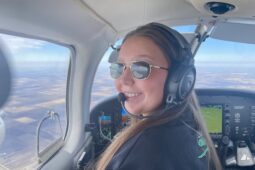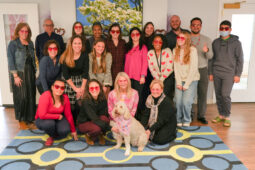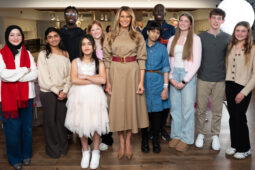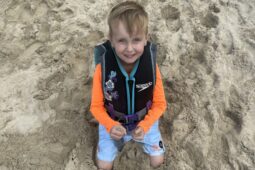Eli and Thomas Keep a Positive Outlook
Chris and Scott were set on adopting from China and were open to a child with special needs. When completing the intent-to-adopt form, they placed check marks next to different disabilities listed and then waited.
When they heard back from the adoption agency, it was about a little boy with albinism, a condition the couple knew nothing about. After a quick search online to learn more, the couple welcomed their son, Thomas, into their family. Almost exactly one year after being matched with Thomas, they received another call from the adoption agency about a girl with albinism. Again, the couple said, “Yes!”
Albinism is a rare condition that prevents the skin, hair and eyes from developing pigment. As a result, people with albinism have markedly white skin and often whitish-blonde hair, though different forms of albinism affect skin, hair and eyes to varying degrees. Protecting their sensitive skin and eyes from the sun is a must for people with albinism. However, far greater of an issue for people with albinism is their limited eyesight and severe light sensitivity.
Thomas, the couple’s first child, is legally blind. Eli, who has a different form of albinism from her brother, is significantly visually impaired.
Both wear glasses and use special equipment in the classroom to see the board, read texts and participate in other classroom activities. They use binoculars to help them see details up close, and ipads also help them magnify things, so they can experience the world in a similar way people with regular vision can.
But neither Eli, 12, nor Thomas, 13, will let their visual challenges stop them from doing what they love.
From an early age, Eli loved cheerleading. Her natural talent and hard work – she spends about 20 hours a week in the gym to practice – have allowed her to excel at the sport she loves. “I’m a flyer,” Eli said. “That’s the person that gets thrown around in the air – and prays she doesn’t get dropped.”
Eli sees the humor in her situation, but being visually impaired adds a layer of difficulty to the sport. For her, every movement has to be incredibly precise. Her team recently won a cheerleading competition and placed second in another.
Thomas, who enjoys classical music and is passionate about technology, plays in his school band and has learned to master multiple instruments. He also enjoys space-themed camps and has received scholarships to attend robotics camps for visually impaired students.
But both Eli and Thomas wish their vision were better. By participating in a clinical trial at the National Institutes of Health’s National Eye Institute (NEI), they hope to help scientists learn more about albinism and find ways to improve or correct the genetically based vision problems that come with albinism.
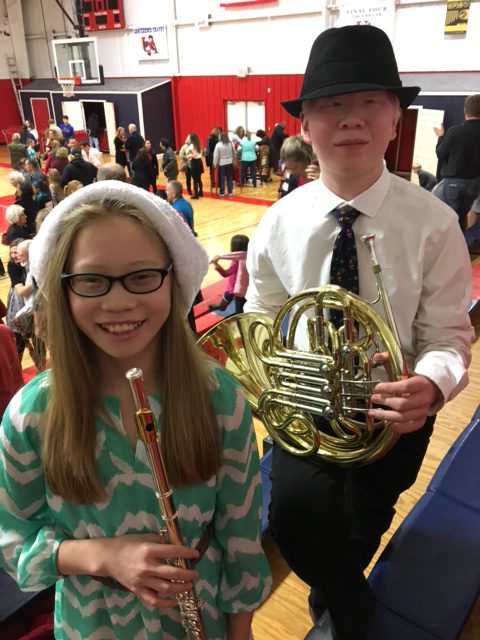
“Our life is different because we cannot see far that much, so we have to either use binoculars or other equipment that zooms in so that we can see,” Eli said. “If we had better vision, then that would be a great thing, and I wouldn’t have to carry around equipment everywhere I go and use binoculars. I would just see things like other people.” The siblings come to the NIH once a year.
“The NIH Oculocutaneous Albinism Natural History study seeks to discover answers for outstanding questions about albinism, and to gather data needed for future treatment studies,” says Dr. David Adams, deputy director of clinical genomics in the office of the clinical director at the National Institutes of Health’s National Human Genome Research Institute. “We consider the study participants to be an essential part of this process. They help us to establish priorities based on the real day-to-day challenges of living with albinism.”
When this family comes to the NIH, they are happy to stay at The Children’s Inn. “For me, The Inn is wonderful,” Chris says. “It gives us a place to stay that’s close to the clinics, and it’s really friendly, and there’s always something to do. […] They’re very helpful, very accommodating. They have a lot of fun activities for the kids. When you spend the day going from appointment to appointment to appointment, you come back here and you’re tired, there’s something fun to help them relax.”

